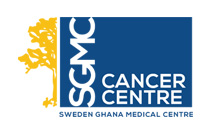The link between cancer and sugar has been investigated by various researchers from as far back as the 1960s. Some researchers have looked at the sources of the sugars to determine effect on onset and disease progression. For instance, in a large prospective study spanning 20years, the association between intake of dietary carbohydrates and colorectal cancer was assessed in 6107 participants. Men who consumed sucrose from sources such as table sugar, sweetened beverages, alcohol etc. had a slightly higher risk of developing colorectal cancer compared to the control group. This has been corroborated by other studies which have established a link between high intake of sugars and increased incidence of bowel, rectal, colon, lung and pancreatic cancers1,2,3,4,5. A number of these associations were also linked to other factors such as level of physical activity, body mass index (BMI) and intake of other fatty foods. Conversely, eating of unrefined sugars as derived from raw and cooked vegetables was seen to be protective against colorectal cancer. Here again, fruits although protective were less so in comparison to vegetables possibly due to their relatively higher sugar content6.
In an experimental setup to determine the relationship between sugars and tumour growth, human prostate tumour cells were implanted in murine models and observed over 9 weeks. At the end of the period, mice who were fed a high carbohydrate diet had larger tumours compared to those on low-carbohydrate diets7. This observation seems to suggest that high sugar content contributes to growth of tumour cells. In the tumour microenvironment, there is metabolic competition between tumour and normal cells over sugars. T cells – which help to fight and clear tumours – require lactate, a form of sugar, for their effector function of tumour clearance. However, glucose utilization by tumours restrict T-cell function thereby allowing cancer progression8. When Seely et al. analyzed the relationship between sugar consumption and deaths from breast cancer, it was seen that older women with disease who consumed high amounts of sugar were likelier to die from breast cancer than younger women with disease9.
From the above, the following deductions can be made: regular intake of refined sugars from sweetened beverages and pastries increases your risk of cancer whereas a balanced amount of vegetables and fruits can significantly protect you from developing cancer; after receiving a cancer diagnosis, an individual who takes in high glucose foods can fuel the growth of tumours resulting in poorer prognosis. Thus, consulting with a registered nutritionist can help one to create and maintain healthy nutritional habits while receiving cancer treatment.
References
- Michaud, D.S., Fuchs, C.S., Liu, S., Willett, W.C., Colditz, G.A. and Giovannucci, E., 2005. Dietary glycemic load, carbohydrate, sugar, and colorectal cancer risk in men and women. Cancer Epidemiology and Prevention Biomarkers, 14(1), pp.138-147.
- Baghurst, P.A., McMichael, A.J., Slavotinek, A.H., Baghurst, K.I., Boyle, P. and Walker, A.M., 1991. A case-control study of diet and cancer of the pancreas. American Journal of Epidemiology, 134(2), pp.167-179.
- Bristol, J.B., Emmett, P.M., Heaton, K.W. and Williamson, R.C., 1985. Sugar, fat, and the risk of colorectal cancer. Br Med J (Clin Res Ed), 291(6507), pp.1467-1470.
- Bostick, R.M., Potter, J.D., Kushi, L.H., Sellers, T.A., Steinmetz, K.A., McKenzie, D.R., Gapstur, S.M. and Folsom, A.R., 1994. Sugar, meat, and fat intake, and non-dietary risk factors for colon cancer incidence in Iowa women (United States). Cancer Causes & Control, 5(1), pp.38-52.
- De Stefani, E., Deneo‐Pellegrini, H., Mendilaharsu, M., Ronco, A. and Carzoglio, J.C., 1998. Dietary sugar and lung cancer: A case‐control study in Uruguay.
- Franceschi, S., Favero, A., La Vecchia, C., Negri, E., Conti, E., Montella, M., Giacosa, A., Nanni, O. and Decarli, A., 1997. Food groups and risk of colorectal cancer in Italy. International Journal of Cancer, 72(1), pp.56-61.
- Venkateswaran, V., Haddad, A.Q., Fleshner, N.E., Fan, R., Sugar, L.M., Nam, R., Klotz, L.H. and Pollak, M., 2007. Association of diet-induced hyperinsulinemia with accelerated growth of prostate cancer (LNCaP) xenografts. Journal of the National Cancer Institute, 99(23), pp.1793-1800.
- Chang, C.H., Qiu, J., O’Sullivan, D., Buck, M.D., Noguchi, T., Curtis, J.D., Chen, Q., Gindin, M., Gubin, M.M., van der Windt, G.J. and Tonc, E., 2015. Metabolic competition in the tumor microenvironment is a driver of cancer progression. Cell, 162(6), pp.1229-1241.
- Seely, S. and Horrobin, D.F., 1983. Diet and breast cancer: the possible connection with sugar consumption. Medical hypotheses, 11(3), pp.319-327.
